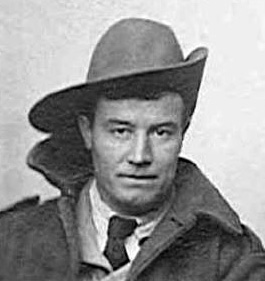William Thomson
From Our Contribution
 Gosnells Local History Library | |
| Personal Information | |
|---|---|
| Date of Birth | Not known |
| Place of Birth | Fremantle, Western Australia |
| Age at Enlistment | 18 years. 5 months |
| Description |
5'6" (1.68m) tall ; 165lbs 74.843 kg ; fresh complexion ; brown eyes ; auburn hair |
| Occupation | Labourer |
| Religion | Church of England |
| Address | Southern River road, Gosnells, Western Australia |
| Next of Kin | Father , Mr G Thompson |
| Military Information | |
| Reg Number | 6649 |
| Date of Enlistment | 3 Jan 1917 |
| Rank | Private |
| Unit/Formation | 28th Battalion, 19th Reinforcement |
| Date of Embarkation | 29 Jan 1917 ‒ 27 Mar 1917 |
| Ship Embarked On | HMAT A28 Miltiades Fremantle to Devonport |
| Date of Return | 25 Jan 1919 ‒ 15 Mar 1919 |
| Ship Returned On | HMAT A40 Ceramic |
| Fate |
WIA 20 Sep 1917 Menin Road Returned to Australia |
| Monument |
Gosnells Road Board Honour Roll Gosnells Primary School Honour Roll |
| Medals |
British War Medal Victory Medal |
Contents
War Service
Entered Blackboy Hill camp on 3 Jan 1917 and almost immediately was allocated to the 19th reinforcement draft for the 28th Battalion and sent to England. During the voyage to England he required the service of the ship's hospital from 2 - 9 Feb 1917. On arrival in England he was sent to the 7th Training Battalion at Rollestone to prepare for service on the Western Front. Bill was AWOL from midnight 21 May 1917 until 2:00am on 22 May 1917 for which he was awarded 1 day confined to camp and forfeit of 2 day's pay.
On 16 Jul 1917 Bill proceeded overseas through Southampton, and after more that a week waiting, he joined the 28th Battalion on 31 Jul 1917, one of 287 reinforcements that joined the battalion at Cassel as it was rebuilding. On 20 Sep 1917 the 28th Battalion was a major participant in the attack on Westhoek Ridge later known as the Battle for Menin Road. During the battle Bill received shrapnel injuries to his head and left thigh. Seen by the 6th Australian Field Ambulance on 20 Sep 1917, Bill was passed back to the 3rd Canadian Casualty Clearing Station the same day. On 21 Sep 1917 Bill was admitted to the 3rd General Hospital at Le Tréport where he was treated until 23 Sep 117 when it was decided to evacuate him to England.
On 25 Sep 1917 Bill was embarked on HMAT A69 Warilda for England. On arrival Bill was admitted to the 5th Southern General Hospital in Portsmouth on 26 Sep 1917. He was transferred to the 3rd Australian Auxiliary Hospital at Dartford on 18 Oct 1917, and transferred to Weymouth on 22 Oct 1917. On 29 Oct 1917 he was moved to the No.3 Command Depot at Hurdcott where he was medically reclassified B1a2. On 6 Nov 1917 he was admitted to hospital again, released to duty on 19 Nov 1917. Hospitalised again on 16 Jan 1918, this time in the 2nd Australian Auxiliary Hospital at Hurdcott with bronchitis, he was released on 20 Jun 1918, but before he could enjoy his leave he was admitted to the 1st Australian Auxiliary Hospital in Harefield on 24 Jun 1918. Two days later he was admitted to 1st Australian Dermatological Hospital in Codford with VD. Discharged to duty on 7 Oct 1918 after 101 days ineffective service.
Although he briefly was engaged in training at the Overseas Training Brigade, it was not likely that he would be sent back to France, and he was an early returnee to Australia.
Discharged by the 5th Military District on 15 Apr 1919.
Post War
William appears in two images of the Gosnells Football Club. Taken in 1921 and 1922, he was the vice-captain and the team were the Premiers in both years.[1]
Notes
- ↑ City of Gosnells Local History Collection-The Gosnells Honour Roll at Gosnells Primary School